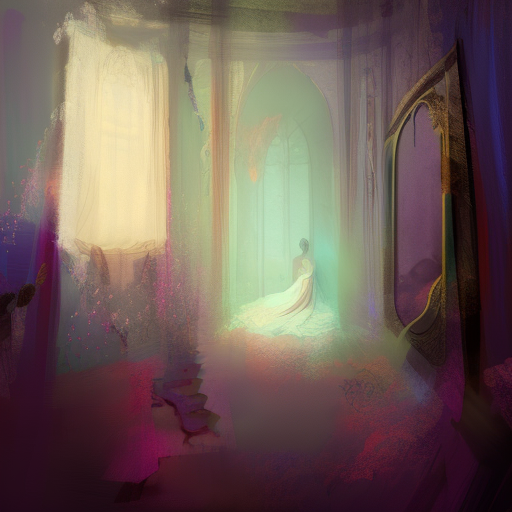One-line Summary:
A Room of One’s Own by Virginia Woolf explores the importance of financial independence and physical space for women in order to pursue their creative endeavors.
The Power of Financial Independence
In A Room of One’s Own, Virginia Woolf emphasizes the significance of financial independence for women in order to have the freedom to pursue their creative passions. She argues that throughout history, women have been denied access to education, opportunities, and resources, which has hindered their ability to fully develop their talents. Woolf highlights the importance of women having their own money and property, as it provides them with the necessary autonomy to explore their creativity without relying on men.
Woolf illustrates this point by imagining a fictional sister of William Shakespeare, who possesses the same talent and potential as her famous brother. However, due to societal constraints and lack of financial means, she is unable to pursue her writing career and ultimately ends up living a life of obscurity. This example serves as a powerful reminder of the countless women throughout history who were denied the opportunity to express their creativity due to societal limitations.
The Need for Physical Space
Another key theme in A Room of One’s Own is the importance of physical space for women to engage in creative pursuits. Woolf argues that women have historically been confined to domestic spaces, with limited access to libraries, universities, and other intellectual environments. This lack of exposure and isolation has hindered their ability to fully develop their creative potential.
Woolf suggests that women need a physical space of their own, free from distractions and societal expectations, in order to explore their thoughts and ideas. She emphasizes the need for a literal room with a lock, where women can have privacy and uninterrupted time to engage in their creative endeavors. This space would allow women to escape the constraints of their domestic responsibilities and focus solely on their artistic pursuits.
The Role of Gender in Literature
Throughout A Room of One’s Own, Woolf explores the role of gender in literature and the ways in which women have been marginalized and misrepresented in literary works. She argues that the male-dominated literary canon has perpetuated stereotypes and limited the portrayal of women to narrow, one-dimensional characters.
Woolf calls for a shift in perspective and urges women to write their own stories, free from the constraints of societal expectations. She believes that by reclaiming their voices and challenging traditional gender roles, women can contribute to a more diverse and inclusive literary landscape.
Key Takeaways:
- Financial independence is crucial for women to pursue their creative passions.
- Women need physical space, free from distractions, to engage in creative endeavors.
- The male-dominated literary canon has marginalized and misrepresented women.
- Women should reclaim their voices and challenge traditional gender roles in literature.
“A woman must have money and a room of her own if she is to write fiction.”
In A Room of One’s Own, Virginia Woolf advocates for the financial independence and physical space that women need to pursue their creative endeavors. She highlights the historical limitations placed on women and calls for a shift in societal attitudes towards gender roles. By providing women with the necessary resources and freedom, Woolf believes that they can contribute to a more diverse and inclusive literary landscape.












